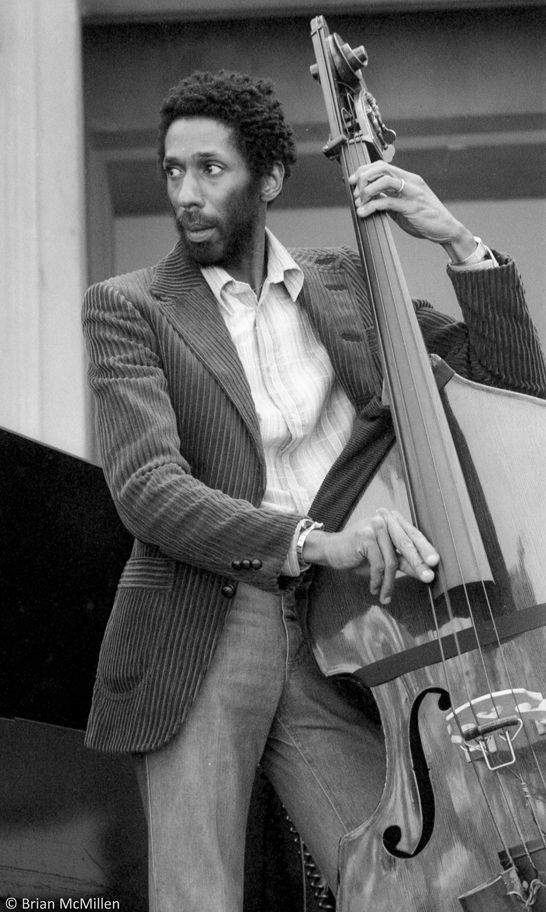Written by Sam Mondros
No Hang-Ups is a weekly segment where you can find recommendations for jazz music of all kinds! This weeks album:

Share the Wealth (2020) by The Nels Cline Singers featuring guitarist and composer Nels Cline, on guitar; Skerik, saxophone; Brian Marsella, keyboard; Trevor Dunn, bass; Scott Amendola, drums; and Cyro Baptista on percussion.
Nels Cline’s (center-left below) new album Share The Wealth was released just last week on November 12th and features the guitarist exploring soundscapes that inspire and confuse. The album is eighty minutes and in that time Cline goes through a myriad of moods while maintaining a consistent style.

Cline is most well known for his work as lead guitarist in indie-rock band Wilco starting in 2005 and first appearing on their Sky Blue Sky record. This album represented a shift in Wilco’s sound, thanks to Cline, away from the indie sound of Yankee Hotel Foxtrot to a more nuanced rock. Clines’s work on this album is monumental and his jazz chops are apparent. Sounding like a less impulsive Tom Verlaine, Sky Blue Sky, and Wilco’s subsequent albums really put Nels Cline on the map as far as being not just an accomplished guitarist—but one of the best to ever hold the instrument.

Cline would go on to take part in several side projects that ranged from just about every genre on the map working with renowned musicians like Thurston Moore, Yoko Ono, Rufus Wainwright, and hundreds more on. Share the Wealth is a project containing mostly five to eight-minute songs save Stump The Panel and A Place On The Moon which are both just north of 15 minutes. Clines’s approach to this free jazz album is bold and rarely tires in both textures and concepts. His excellent manipulation of noise is complemented by the styles of the musicians featured.

Cline’s ability to manipulate sound is impressive. Like seriously impressive almost to the point of mad scientist knowledge. Just listen to tracks like Stump The Panel and Princess Phone. If sonic warfare is the last atrocity to strike 2020 it’s likely that General Cline will be leading the brigade with his plethora of pedals and precision harmonics. Cline has a unique madcap style comparable to musicians like Stephen Malkmus or Bill Bruford. Artists that reach not for perfection but feeling and style achieved through a great intuition. It is very impressive music that has a whim of surprise and improvisation. Cline moves with guile from cool jazz to horror movie soundtrack to pop song in a matter of minutes and then blends the three ideas together as he does in Beam/Spiral.

The opening track, Segunda, is most reminiscent of his work with Wilco only because of its wavering guitar leads and wet distortion in a minor mode. It is a sweet little number that perhaps holds more control than any other track on the album. Saxophonist, Skerik, noodles over the keys with a shrill timbre that sounds like something from Coltrane’s cosmic years. Cline politely responds.
Stump the Panel is a real checkpoint on Share the Wealth and can only be described as permissive bedlam. The maximalist nature of this piece keeps you hanging on the whole time. The crescendo is at 6 minutes and Skerik keeps you entertained during the diminuendo with a kind of floating mess of scale sequences that he weaves around the calm mood. The song catches itself before it gets too comatose and closes with a metal riff that is surrounded and then shown out by a dark synth composition that could easily belong on a Vangelis record.
Pleather Patrol starts off with some textures and harmonies that sound like they might be from a Larks’ Tongue In Aspic B-side with the rustling snare, bouncing rounded bassline, and that crunch-trash distortion Fripp is so notoriously associated with. The song really opens up and Marsella has a field day with his synth. Cline jumps in and the song truly starts sounding like a King Crimson song when the percussion gains dozens of textures and violin comes in. Just pure fun.
Cline weaves this hectic array of songs together masterfully and ends the album with the serene, Passed Down. The album is a challenging hodgepodge of sonic atrophy and melodic delight. It does what any great album is meant to do—trial the audience, excite them and give them something absolutely original.
Genre: Free-Jazz, Experimental


